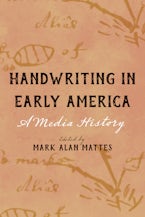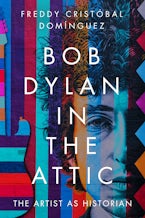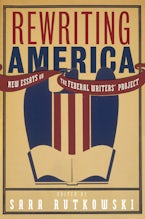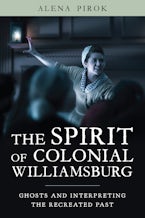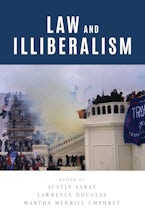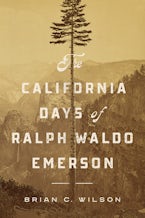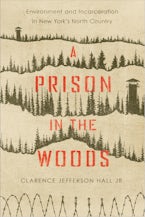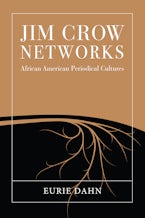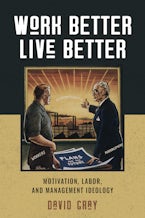- Home
- For a Short Time Only
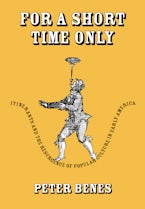
For a Short Time Only
Itinerants and the Resurgence of Popular Culture in Early America
by Peter Benes
Published by: University of Massachusetts Press
528 Pages, 7.00 x 10.00 x 1.80 in, 134 b&w illus.
Other Retailers:
Winner of the 2017 Theatre Library Association's George Freedley Memorial Book Award
By the 1740s, colonists living in North America began to encounter scores of itinerant performers from England and Europe. These show people—acrobats, wire dancers, tumblers, trick riders, painters, dancing-masters, waxworks proprietors, healers, and singing and language teachers—brought novelty and culture to remote areas. Advertising in newspapers, they attracted audiences with the hook of appearing "for a short time only."
In this richly illustrated and deeply researched book, Peter Benes examines the rise of early American popular culture through the lives and work of itinerants who circulated in British North America and the United States from the late seventeenth through the early nineteenth century. Although they were frequently reviled as quacks and absconders by many provincials, these transients enjoyed a unique camaraderie and found audiences among high- and lowbrow alike. Drawing on contemporary diaries, letters, reminiscences, and hitherto inaccessible newspaper ads, broadsides, and images, Benes suggests why some elements of Europe's carnival and folklore traditions failed to gain acceptance in American society while others flourished brilliantly.
By the 1740s, colonists living in North America began to encounter scores of itinerant performers from England and Europe. These show people—acrobats, wire dancers, tumblers, trick riders, painters, dancing-masters, waxworks proprietors, healers, and singing and language teachers—brought novelty and culture to remote areas. Advertising in newspapers, they attracted audiences with the hook of appearing "for a short time only."
In this richly illustrated and deeply researched book, Peter Benes examines the rise of early American popular culture through the lives and work of itinerants who circulated in British North America and the United States from the late seventeenth through the early nineteenth century. Although they were frequently reviled as quacks and absconders by many provincials, these transients enjoyed a unique camaraderie and found audiences among high- and lowbrow alike. Drawing on contemporary diaries, letters, reminiscences, and hitherto inaccessible newspaper ads, broadsides, and images, Benes suggests why some elements of Europe's carnival and folklore traditions failed to gain acceptance in American society while others flourished brilliantly.
Peter Benes is director of the Dublin Seminar for New England Folklife in affiliation with Historic Deerfield, Inc., in Deerfield, Massachusetts. His previous books include Meetinghouses of Early New England (University of Massachusetts Press, 2012), winner of the 2014 Abbott Lowell Cummings Prize of the Vernacular Architecture Forum.
"This is an original and scholarly study, based on an impressively deep knowledge of a cultural world that we have lost, and so a book with wide potential appeal."—Peter Burke, author of A Social History of Knowledge II: From the Encyclopédie to Wikipedia
"For a Short Time Only is a masterful work of research."—David Jaffe, author of A New Nation of Goods: The Material Culture of Early America
"It is a pleasure to spend time with the roving cast of characters Peter Benes introduces us to in his enjoyable new book. . . . Benes's detective work enables him to limn surprisingly deep and poignant portraits of these enterprising folks as they traversed the landscape during the colonial and early republic eras. . . . It is a testament to Benes's expertise and dogged research that so many enticing channels of inquiry have been opened here. The book will be an invaluable resource for those interested in early American history beyond its popular culture, too, including popular science technology and medicine, animal rights, the arts and entertainment, and the lives of the marginalized, to suggest but a few."—New England Quarterly
Winner of the 2017 Theatre Library Association’s George Freedley Memorial Book Award
Selected as a 2017 Choice Outstanding Academic Title

